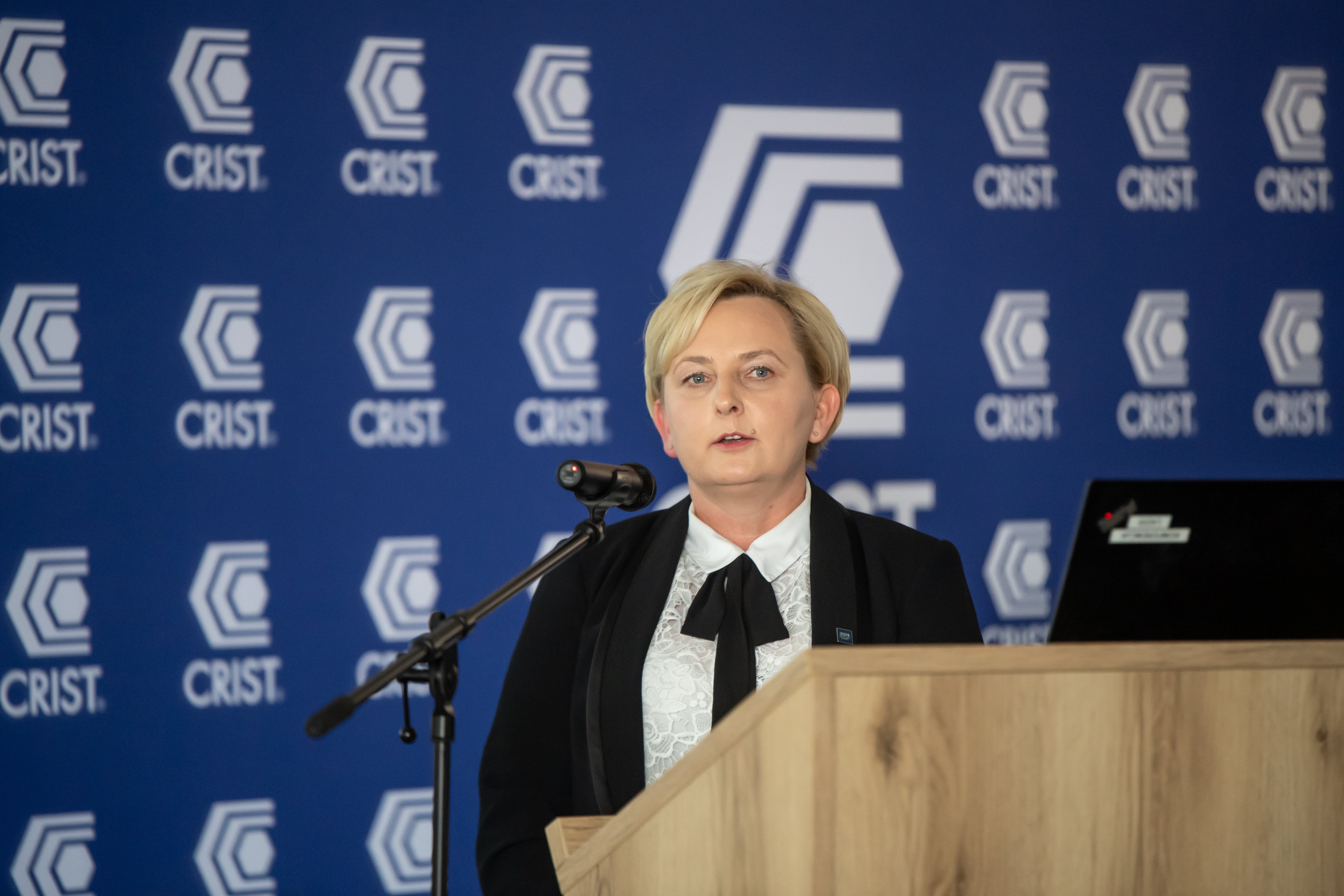Appeal by Members of the Business Convention to Protect the Waters of the Baltic Sea
The Baltic Sea was the central theme of the 6th meeting of the Business Convention at the Fahrenheit Universities. During the session, members of the Convention adopted a formal appeal calling for the cleanup and protection of the Baltic Sea. The announcement of the appeal was preceded by presentations from the authorities of the Fahrenheit Universities, the management board of CRIST S.A., and the director of the Institute of Oceanology of the Polish Academy of Sciences.
The next session took place on 9 April 2025, at the headquarters of CRIST S.A., a leading shipyard in the construction of special vessels designed for operations at sea. The meeting was opened by Zbigniew Canowiecki, Ph.D., Chair of the Business Convention at the FarU. The guests were welcomed to the shipyard by its host, President Ireneusz Ćwirko. The introductory remarks were also delivered by Prof. Piotr Stepnowski, Chair of the Assembly of the Fahrenheit Universities and Rector of the University of Gdańsk. He then opened the series of presentations by discussing the University’s ongoing research focused on monitoring the condition of Baltic Sea waters. He emphasised the importance of seeking solutions to protect the sea and reminded attendees that 99.7% of Poland’s territory lies within the Baltic Sea drainage basin.
The second speaker was Prof. Jan Marcin Węsławski, Director of the Institute of Oceanology of the Polish Academy of Sciences. He presented statistics confirming that the Baltic Sea, the body of water closest to Poland, is one of the fastest-warming marine areas in the world, a trend driven by global processes of immense inertia. He also explained the complexity of the current situation — although international cooperation efforts under HELCOM (Baltic Sea Action Plan) have produced positive results, such as reduced concentrations of fertilizers in the sea, public expectations often exceed what is within our control. For example, the process of degassing the sea remains beyond our current capabilities.
The issue of pollution had already been raised by Professor Krzysztof Wilde, Rector of Gdańsk University of Technology, who emphasised the serious challenge of chemical weapons disposal. In response to such threats, the University established the Security and Defense Technologies Center, dedicated to research and implementation of security-related innovations. Further insight into the centre’s operations was provided by Justyna Kucińska-Lipka, Associate Professor of the GUT, and Vice-Rector for Development.
In turn, Ireneusz Ćwirko, President of the Management Board of CRIST S.A., delivered a presentation titled “Platform for Pollutant Extraction and Disposal”, in which he discussed the outcomes of seabed cleaning operations carried out using remotely operated underwater vehicles (ROVs). He emphasised, however, that such processes require not only advanced engineering solutions but also strong international cooperation, as the Baltic Sea is a shared resource, and its future depends on actions taken at the global level.
The next item on the agenda was the adoption of the Appeal by the Members of the FarU Business Convention calling for the cleanup and protection of the Baltic Sea. The appeal supports the Position of the Senate of the Republic of Poland’s Committee on Climate and Environment and Committee on Foreign Affairs, concerning the safety and protection of Baltic Sea waters, adopted in Gdynia on 2 September 2024. The business and academic circles of the Pomeranian region thus declared their commitment to joint action, including initiatives aimed at monitoring pollution levels, developing technical methods for the disposal of chemical weapons, and constructing an autonomous platform for the inspection of critical offshore infrastructure. The appeal also highlighted the readiness of the Gdynia-based CRIST S.A. shipyard to immediately begin the construction of vessels dedicated to the extraction and disposal of chemical weapons lying on the Baltic seabed.
Before touring the shipyard facilities, participants signed the Declaration of Accession to the Pomeranian Coalition for the Development of the Data Centre and AI Industry, an initiative launched by the Baltic Energy Transformation Institute. The Rectors of the Medical University of Gdańsk, Gdańsk University of Technology, and the University of Gdańsk – all members of the Fahrenheit Universities in Gdańsk – together with representatives of the Pomeranian business circles affiliated with the Business Convention at the FarU, stated in the document that innovation, energy digitalisation, quantum computing, and green energy are the defining symbols of the region’s future. Their joint efforts aim to contribute to the development of a robust ecosystem that will not only attract investment but also enable the long-term growth of a knowledge- and technology-driven economy in the Pomeranian region.
The meeting concluded with a guided tour of the CRIST S.A. shipyard facilities. Participants had the opportunity to visit the shipyard’s production areas, including hull assembly yards where vessels are currently under construction. The tour route also included a walk along the dry dock (measuring 380 meters in length, 70 meters in width, and 8 meters in depth), where ships are assembled and launched. A highlight of the visit was the chance to see up close one of the largest gantry cranes in the Baltic Sea region, with a span of 153 meters and a lifting capacity of 1,000 tons.
photo: Gregmar










